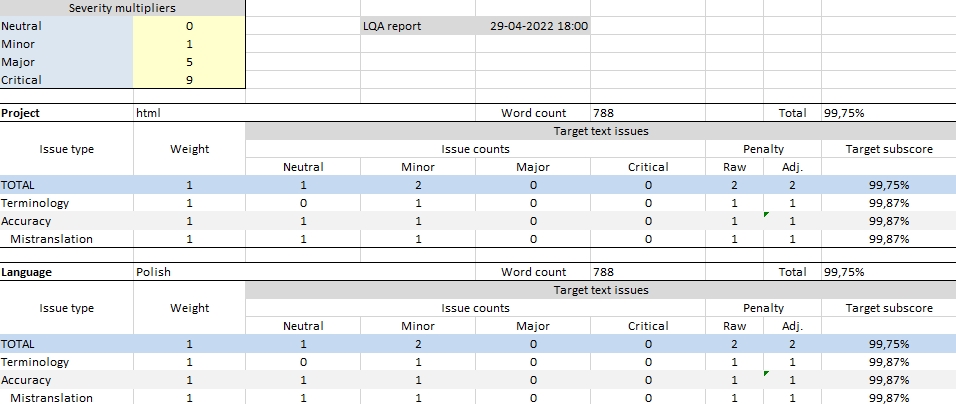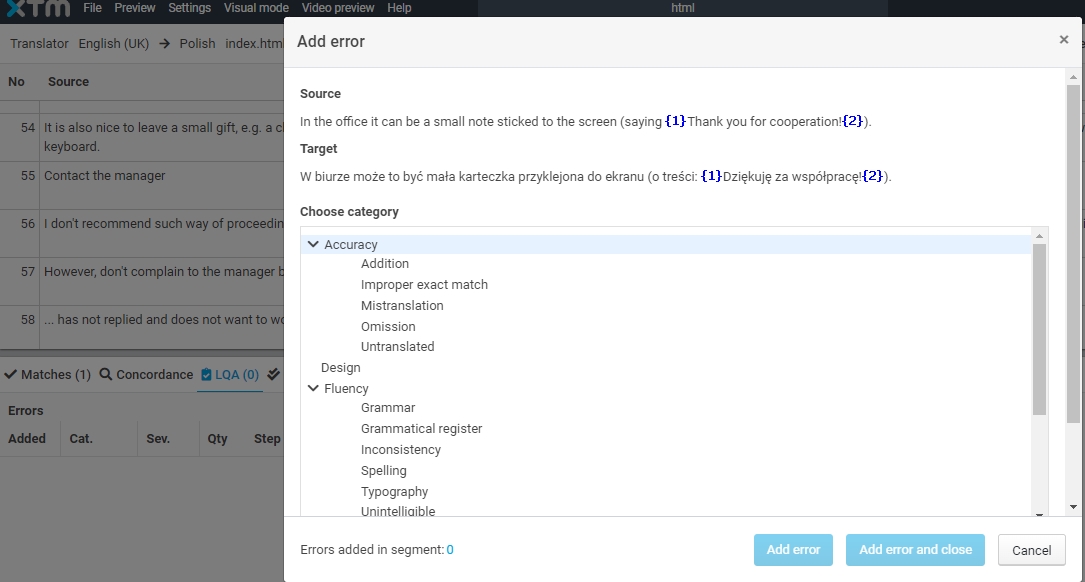Linguistic Quality Assurance
Linguistic Quality Assurance (LQA) is a comprehensive, multi-level process that includes a large number of factors that all aim to measure, control and increase the linguistic quality of any text.
- different meaning/mistranslation/incorrect translation
- omissions
- inaccuracy or inconsistency with glossary, style guide or translation memory
- inadequate spelling, grammar, punctuation
- wrong register
The process of performing LQA begins with the recording of the errors in translation and ends with reporting analysis. For that purpose an evaluator can use a special form or use a TMS-embedded one.
In XTM, the LQA feature is a translation quality scoring system based on the Multidimensional Quality Metrics (MQM) model which has been designed as part of the QT Launchpad project. As a result it is flexible (can be easily configured to meet your needs), suitable for all translation methods (including MT) and comparable.
You can also set the weight for each item and severity multiplier for neutral, minor, major, and critical items, or add new errors.
XTM offers different methods of calculating LQA scores:
-
based on the number of words in the target text (default option)
-
based on the number of words in the source text
-
Reference Word Count (RWC) which can be added to either of the other methods.
After the process is completed in XTM Workbench, you can view LQA results next to each user or download an LQA report as an Excel file.

LQA can be a separate service or a part of the translation service that you buy from your LSP. In any case, XTM enables you to perform it using a separate LQA workflow step.
You have to decide the total score when a translation is considered as pass or fail. Usually, when it is below 93%, the test is failed and the translation should be returned to the linguist for correction.
